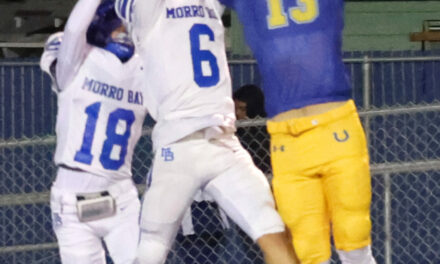Perhaps you remember the first time you experienced the magic of the Olympics. I was a young girl when I discovered this glorious event that was born in ancient Greece and then reborn like a phoenix from the ashes.
I learned that it had grown to encompass athletes from around the globe to challenge each other and themselves to feats of excellence. Even then, I was a bit romantic and loved this image.
Over the decades, I grew to respect and admire this tradition considerably. I shared this love of the Olympics with my children, who passed it on to theirs. We have been blessed again this month with a bird’s eye view of what is currently happening in the magical city of Paris—ooh la la!
The Paris Olympics opening ceremonies, introduced by famous filmmaker Steven Spielberg’s short film, were a delight for the senses, from the unique travel adventure of the torch, the parade of countries’ teams, and boats to the colorful streams of red, white and blue, the colors of France’s flag.
Tens of thousands of onlookers happily endured the rain from riverbanks, balconies and bridges. We were watching them all from our televisions as fellow spectators.
Famous entertainers like Celine Dion, who sang from the Eiffel Tower, and Lady Gaga, who stepped down a staircase escorted by dancers with huge pink ostrich feather fans, added a dramatic effect. Intriguing tableaus referred to Paris’s rich creative treasure chest, too.
The Paris Olympics began on July 26 and will close on Aug. 11. This year, there will be 10,500 competitors coming from 206 countries. They stand out as the first Games to achieve parity with 5,250 males and 5,250 females.
Symbolism is significant in all Olympics. The official motto is “Citius, Altius, Fortius—Communiter,” which means “Faster, Higher, Stronger—Together.”
The colored rings are blue, yellow, black, green and red. According to the International Olympic Committee, “When Pierre de Coubertin created the Rings in 1913, the five colours combined with the white background represented the colours of the flags of all nations at that time, without exception.” It also says the three values of the Olympics are excellence, respect and friendship.
Let’s journey a bit into the past. You may have noticed that, in the opening ceremonies, the first boat carrying a country’s team member down the Seine River was from Greece.
This custom is due to a long-held tradition that honors the country that created the Olympics in ancient times: Greece. The first Olympics began there in 776 B.C. and continued until 393 A.D.
The Olympic Games’ name comes from Mount Olympus, which the ancient Greeks believed was the home of their gods. The Games were part of the religious ceremonies that honored Zeus.
Britannica Kids says, “The first Olympic champion listed in the records is Coroebus of Elis, a cook who won the sprint race in 776 B.C.” By 708 B.C., the ancient Olympics included wrestling, more racing events, and the pentathlon, “a five-part event that included running, wrestling, jumping, and throwing the discus and javelin.”
The rules of the wrestling competition were generous, allowing kicking and hitting a fellow wrestler when they were down. However, biting was intolerable. The Games back then were very rough, and sometimes competitors died.
There were no ball events and no teams. Competitors back then were male and competed naked to pay tribute to Zeus.
According to Abigail Wyatt with Southern Utah University, ancient athletes wanted him to see their muscular bodies and physical prowess. Wyatt also states that those who won the Olympics received a cash prize and a crown made of olive leaves.
While the Games hibernated for centuries, they were often spoken of and revered. It was in the late 19th century that talk revived the Games. Due to that effort, the renewed Olympics were held in 1896 and continue today.
The first modern Olympics had just 14 nations competing. The first Olympic Winter Games took place in 1924. The first Olympic Summer Games mascot was a dachshund named Waldi.
Other firsts include the introduction of several sports to the Olympic Games. In 1984, the women’s marathon became an Olympic sport, with table tennis following in 1988 and softball in 1996.
The largest city to host the Olympic Winter Games is Vancouver, Canada. The country that has held the most Olympics is the United States.
Records and the competitors who broke them have long been celebrated. In 1935, American Jesse Owens set an 8.13-meter record for the long jump that lasted for 25 years. According to the Smithsonian Institution, Owens is credited with “single-handedly crushing Hitler’s myth of Aryan supremacy.” That really upset Hitler.
According to Britannica, American athlete Carl Lewis stole the show at his debut in 1984, winning the gold medals in the 100-meter and 200-meter races and the long jump. American Florence Griffith Joyner won three gold medals at the 1988 Seoul Olympics.
In 1904, gymnast and amputee George Eyser won six medals—three of them gold—with a prosthetic leg. Michael Phelps broke Mark Spitz’s 36-year-old record in 2008.
One of my favorite Olympic memories is when gymnast Nadia Comăneci won a perfect 10. Nicola Adams was the first boxing Olympic gold medalist. In 2000, Cathy Freeman was the first Indigenous Australian to win gold in the 400 meters.
Controversies aren’t rare in the Olympics: one of the most historically significant ones involved using the Berlin Games to generate Nazi propaganda in 1936.
According to the Holocaust Encyclopedia, the Nazis attempted to fool the rest of the world by using the Berlin Games to promote “an image of a new, strong, and united Germany while masking the regime’s targeting of Jews and Roma, as well as Germany’s growing militarism.” Nothing could have been further from the truth.
In the 1980 Olympic Summer Games in Moscow, a United States-led boycott protesting the 1979 Soviet invasion of Afghanistan occurred.
Now, in 2024, once more, Russian athletes cannot compete due to Russia’s invasion of Ukraine. Russia has also been involved in doping scandals concerning its athletes.
Sadly, in 1968, “10 days before the opening of the Summer Olympics in Mexico City, police officers and military troops shot into a crowd of unarmed students. Thousands of demonstrators fled in panic as tanks bulldozed over Tlatelolco Plaza,” according to the National Public Radio (NPR). The final death toll remains a mystery, but eyewitnesses say that hundreds died.
According to NPR, in 1972, tragedy struck at the Munich Games in what became known as the Munich massacre, when eight terrorists from the Palestinian militant group Black September broke into the Olympic Village and eventually killed 11 Israeli athletes and a West German policeman.
NPR also states that part of the terrorists’ mission was to “demand the release of 236 prisoners: 234 in Israel and the two leaders of the West German Baader-Meinhof terrorist group.”
Still fresh in our memory is the Atlanta Olympics bombing by Eric Rudolph, which killed a woman and injured more than 100 people. Security at the Olympic Games is a continuing, challenging and significant issue.
It’s too soon to know which events of the Paris Olympics will be the most memorable or whose medal run will leave us with a golden memory.
I believe the Olympics are much more than a spectator sport: we’re proud of our athletes, and the sheer will and dedication of all inspire us. They are helping to make a joined memory that binds us all together. And unity is something we all need to feel.
On another, more personal note, my two amazing great-grandchildren were born in August. Coming up in just a few days is the first birthday of Grayson, son of Ricky and Jessica Abejuela.
This little boy has captured so many hearts in his first 12 months with his personality, perfect smile and huge, expressive eyes. It’s his personality that has me enchanted.
Calm, tender, curious, loving and the owner of the most musical laugh, Grayson has me wrapped around his little finger! I feel so blessed to have this wonder of a great-grandchild.
A few days later, I’ll celebrate my beautiful great-granddaughter’s birthday. Mady Gonzales, daughter of Mandy and Craig, will be 11, which seems impossible.
This total charmer has changed my world with her large, deep eyes, long, dark hair and inquisitive mind. It’s so fun to see things through her eyes! Mady has a special energy and her own unique perspective, and I am so fortunate to be her great-grandmother.
Try to stay cool, and most of all, may you soak in all the beauty and magic around us every day. Until next week!



